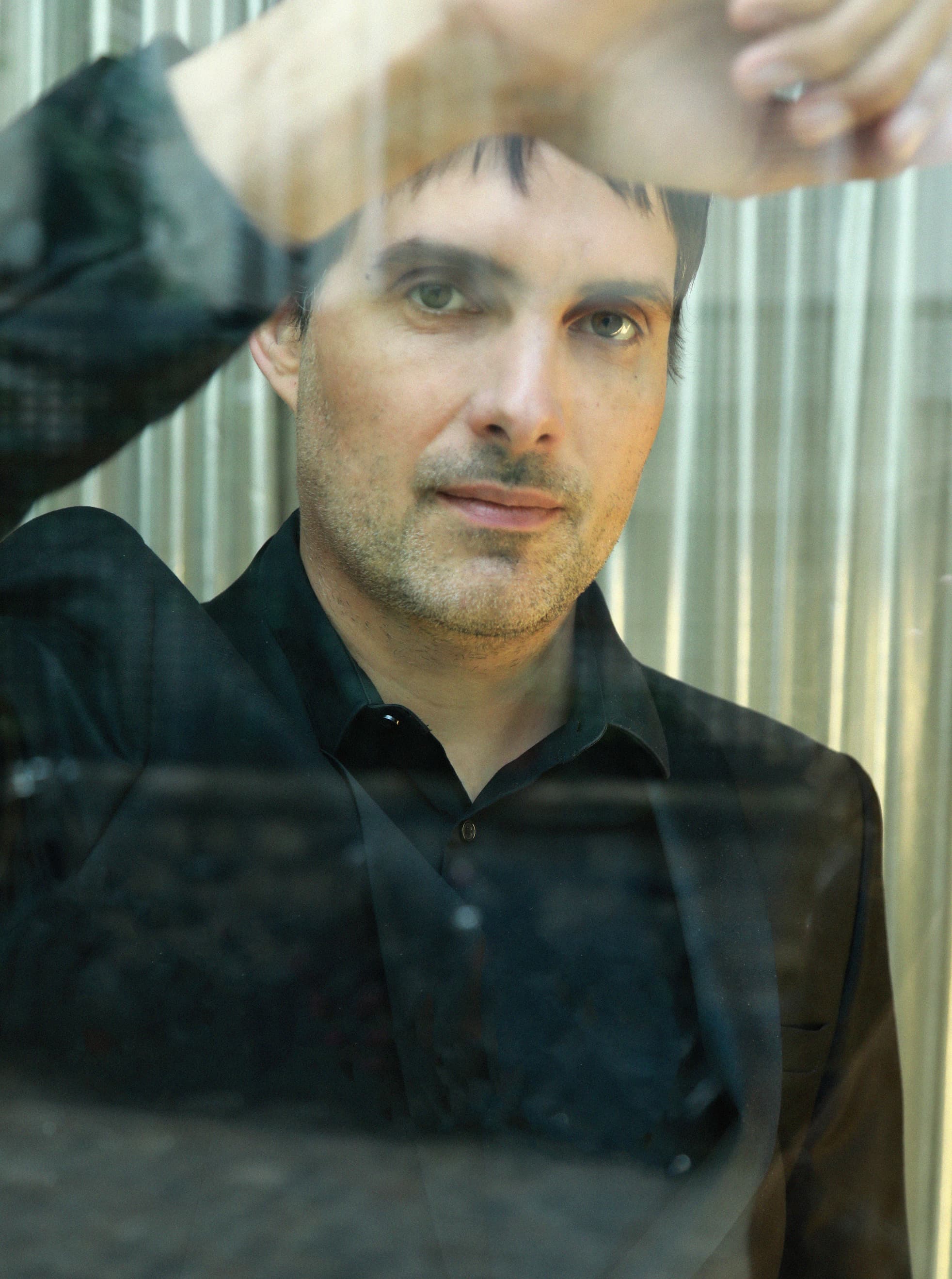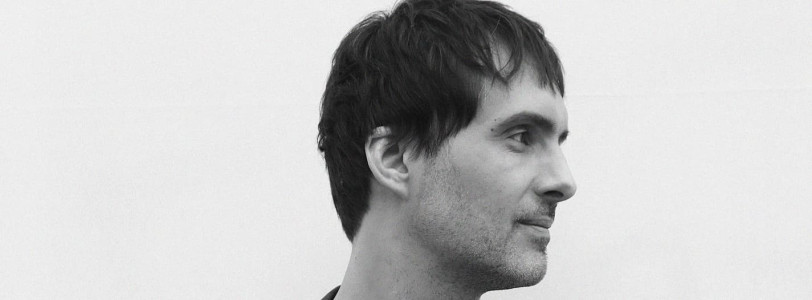Could you first introduce yourself to the reader?
My name is Olivier Deriviere, and I am a French composer based in Paris. Over the years, I’ve had the pleasure to work with many different video games studios spread all over the world. In the UK I’ve been lucky to work on the first ever console game from Aardman. I am classically trained but my love for electronic music made me blend the two worlds into something that I think is quite unique. And of course, I am a gamer, with a lot of love for video games.
What does your job involve? Give us the typical outline of a day?
Composing music for video games is very different from, let’s say, creating a film score. There is no “one” way of working, so I suppose there is no “typical” day. Every composer can have their own way of working. As for me, my process is that I am very involved with the developer, which means usually starting my day with meetings. I think discussing and sharing is key in any creative process. In the end, we are a team making a game. Then, when I know what I need to do, I spend the rest of the day exploring, trying new things either musically or in music design (interactive music).
What’s great about your job?
The best part is the freedom, especially creative freedom. I can experiment and do whatever we think the game needs. For example, for a game called “Remember Me”, which was about manipulating digitised memories, I went to record the London Philharmonia Orchestra and then I post-processed it with some digital effects. Such an approach is really welcome in games. For “A Plague Tale: Requiem” although it happens in the medieval age, we went with avant-garde performers from the “Ensemble Intercontemporain de Paris” created by the late French conductor and composer Pierre Boulez. Open-mindedness, and avenues to explore and experiment with music in the video game world is really what makes my job amazing.
What are the bits you don’t like or find challenging?
I like every bit of video game production, but I must say this is very demanding – I spent 3 years working daily on “Dying Light 2”, for example – and each project is at least a year and a half of dedication. As a composer, I need to write music and what might be surprising is that it really is the easiest part of the whole process. What is a challenge is making the music matter in the game. I want the players to feel that the music is supporting their actions because contrary to a movie which is a passive medium, games are an active medium. Players are in control, and you want to consider that dimension greatly.
What are the highlights of your career to date?
I think every game I’ve worked on was a step closer to the next highlight. It’s been about two decades that I have been composing music for games, and I always wanted to bring the best musicians and engineers I could, to offer the best experience to the gamers. The highlights were getting musicians like members of the Boston Symphony Orchestra, The Children’s Choir of the National Opera de Paris, the London Philharmonia, The Brussels Philharmonic and lately the two times Grammy winning Estonian Philharmonic Chamber Choir. I feel very lucky to have been working with such musicians and institutions for video games.
How did you get into composition? Have you also worked outside the arts?
It just came at a very early age on the little electronic keyboard my mum bought for conducting her local choir. It was fascinating to me to see how sounds could mean so much. Working outside the arts is what all artists do, I believe. We need to meet a lot of people, work on our communication, work with so many aspects that are not art related but without them we could not do art.
Why did you decide to go into video game composition? Are you a gamer yourself?
When I was around 8 my dad bought a 2-colour computer called Commodore 64. It might make kids of today laugh but it was so high-end at the time! This is when I realised I could code music. Using computer languages like Basic I started to create music on a computer. It felt so futuristic! As for being a gamer, yes! Absolutely! My fascination with games hasn’t faded away since the first day my dad showed me a video game on this very computer. I play games all the time.
What makes video games different from other mediums you might compose for?
Video games are not movies, nor toys. The name “video games” is somehow reductive to what they are. A video game can be super fun, easy, with no story, a sport, an e-sport, an experience, a drama. It can be anything. With today’s technology, creatives in games can really express themselves. We’ve been making games that are beyond the simple entertainment of years ago. The biggest differentiation from the other medium to me remains in the way you experience them. You are in control.
How do you start the process of composing for a video game? How early in the creation process are you brought in?
Making a game is a very long process and there are many steps. This would differ from composer to composer, but I usually get started on the process very early on most of the time, when the game is almost only on paper. I talk a lot with the creative team and then we start planning for the music: the instruments, the themes, the narrative arc, if any. And beyond that we talk and prepare for the music design, meaning how the music will interact with the player. To be as early as possible is key to me because so much depends on those key early decisions. If you come in too late you might end up missing the core of the game.
 In video games, the audience has agency, and their actions can trigger sound cues and dictate when particular music ends. How do you factor that into your composition, if indeed you do?
In video games, the audience has agency, and their actions can trigger sound cues and dictate when particular music ends. How do you factor that into your composition, if indeed you do?
Exactly! That’s why I am so involved during all the stages of a game production. It is very demanding; you really need to have a great relationship with the developer to be as close as possible to the game. For the last two decades I have been advocating for pushing music for games to be more than “just” an illustration, like in movies. To do so I had to learn how the technology works and how I could use it. Through my years of practising, I saw how games really gained from such an approach. Critics and mostly the gamers were praising how the music would work with the game I’ve been working on. That is still my best achievement.
You worked on the composition of A Plague Tale: Innocence, and then the sequel, A Plague Tale: Requiem. How did you approach the sequel, and build upon what you’d done before?
Making a sequel is simultaneously easier and harder. It is easier because you know the characters, gameplay, everything is already in place, but it is harder as you need to make something fresh yet coherent. The creative team at Asobo studio is really willing to approach some hard topics like PTSD, anxiety, loss, and death. That’s why the name “Requiem”. It was challenging but, in the end, we put so much of our own life experiences in that it felt like a catharsis. Of course, I didn’t let go of what was established in the first game, but let’s say that we went far in the metaphysical world.
Are there any video games that you look to as having an amazing soundtrack?
There are plenty of games I really enjoyed the music of. I have a soft spot for the Elders Scrolls series (Morrowind, Oblivion, Skyrim). “Halo” in 2001 really killed me at the time, and I was surprised by some really nice compositions in “Stray”. I think the sheer amount of music styles is really amazing in games. Now, I really hope we will get more interactive music in the future, to expand on what games really are.
And is there a game franchise that you’d love to work on?
More than the game itself, it’s about the people. Starting a game is a commitment as most of the time it involves two to three years of work, and nobody knows whether it will be a success or not. So, what really matters to me is the people I work with. I cherish all the incredible times I spent with so many developers, working hard all together to make the game as good as we could.
Would there be a project or director that could tempt you to compose for a film?
Funny you are asking this as I am about to sign for my first feature film! Nothing high profile, but for years I stood away from movies. I love movies, I am a real sucker of cinema, but I must say that music for films has been something that doesn’t resonate much with me. I think the trend of approaching music as a background layer is not my thing. Luckily one director called me, and I really fell in love with his script and his approach. Can’t wait to share more!
Can you describe your biggest challenge so far in your career? How did you overcome it?
The biggest challenge is endurance. Perseverance. I started alone, with no connections and not much money. My parents were very supportive, and I had to come back to live with them several times. I was investing the little money I would make to record musicians and to provide the best I could to the games I was scoring. And my approach to music design (interactive music) was sort of ignored. Spending years in making games that few players experienced and having to struggle so long was hard. But I didn’t let go. I think that’s the biggest challenge to any aspiring composer. To never let go.
Have you noticed any chanyges in the industry? If so, what?
Definitely. The industry has become wider. We still have 3 people making games in a garage, but we also have huge developers with hundreds of employees working on a game. The range of games, the platforms, the teams, everything is much bigger, but the passion is the same. You can talk to any of these developers, they will share their love of video games. That’s something that didn’t change.
You’ve been granted the ability to send a message to 16-year-old you. What do you say?
Please read books, watch movies, listen to music, and search for something you don’t know. Don’t let the mass market tell you what to listen to or watch. We need you to learn to make your choices and digest all these different avenues of creativity and finally discover your own sensitivity.
Do you have any advice for young people interested in doing your kind of job?
Don’t ever let go. Work hard. Don’t give up, ever.
Where can people find out more about you and your work?
I guess they can look up the games I have done on IMDB and maybe play some of them. That’s the best way to know more about me.









0 Comments